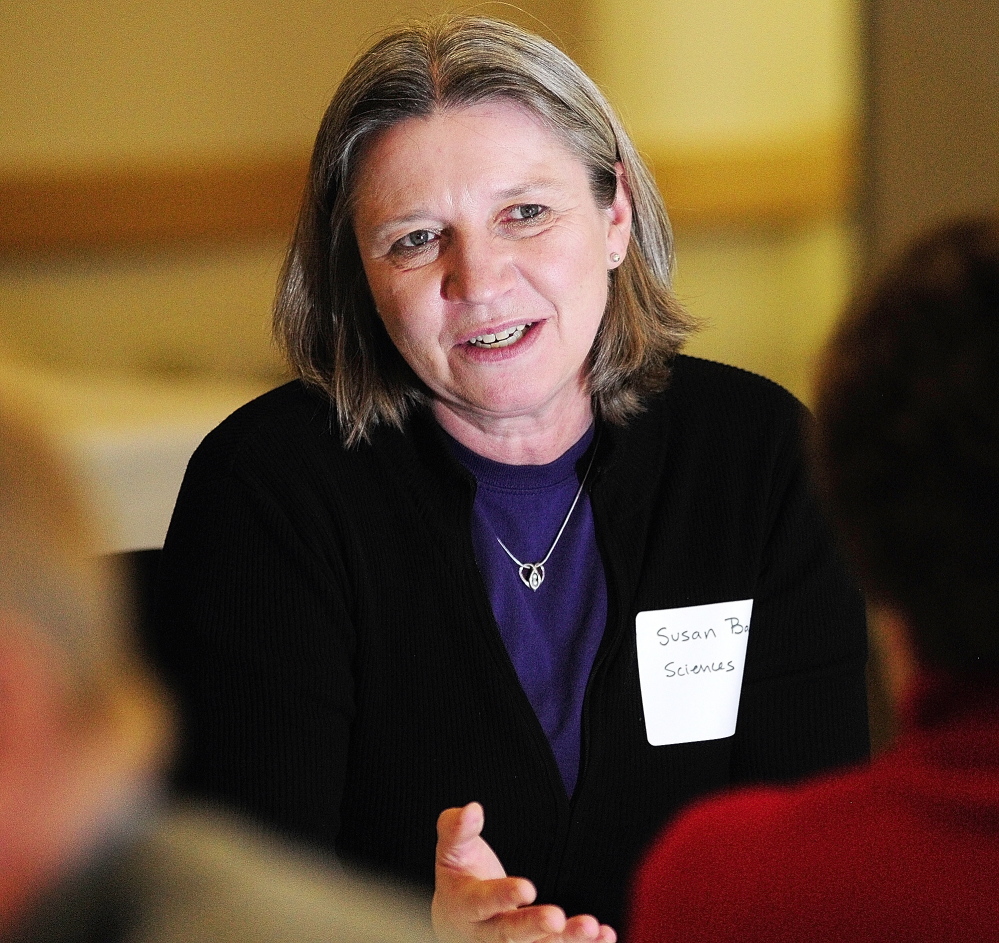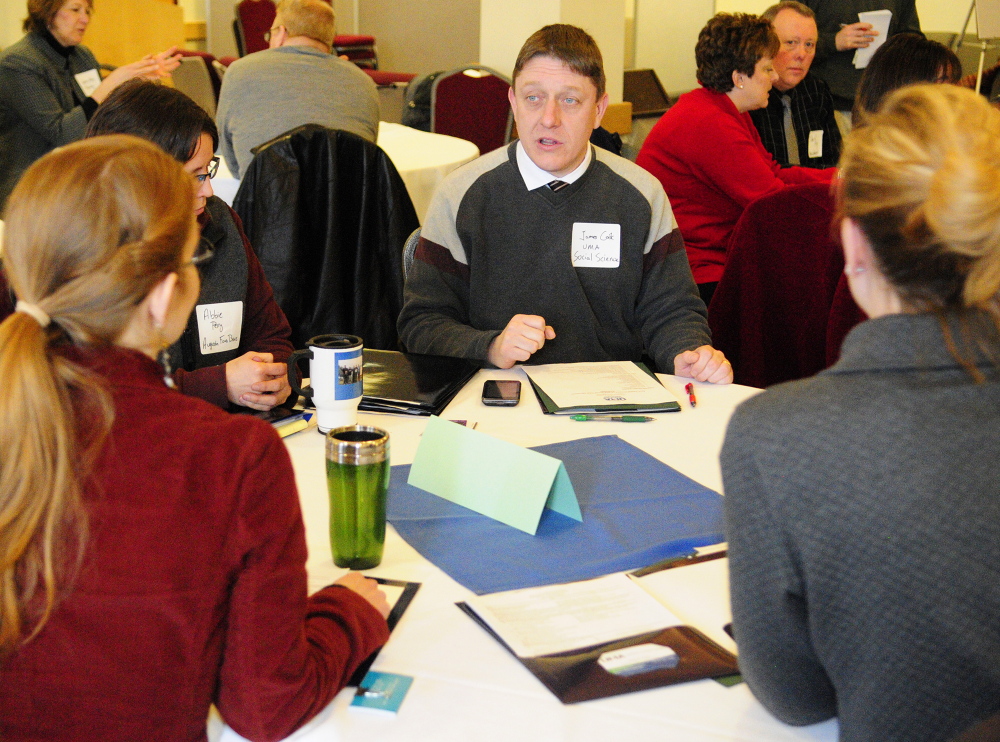AUGUSTA — Leaders of several local groups met with University of Maine at Augusta faculty members Tuesday to look for a connection with college students whose expertise and effort could help further their group’s mission while also furthering students’ educations.
One participant called it “speed dating for community service organizations.”
UMA’s Office of Civic Engagement’s first Service Learning Round Table Discussion brought together officials from area cities, churches, health care agencies and other community service providers with UMA faculty members to look for ways they could help each other.
David King and Maggie Simpson, volunteer coordinators for MaineGeneral Medical Center, chatted with Susan Baker, associate professor of science, about how students in her classes could help at MaineGeneral’s Alfond Center for Health in numerous ways, from assisting in the hospital’s teaching kitchen to helping nurses and doctors as they make their rounds.
After opening remarks, community organization representatives, in timed, 15-minute conversations, talked with UMA faculty members about ways they could help each other. After 15 minutes, they moved on to another table, where other faculty members awaited them, to discuss how their students might participate in service learning for the benefit of both the organization and the student.
“I like to think of it as speed dating for community service organizations,” Greg Fahy, dean of the College of Arts and Sciences, said of the format for the afternoon event. “We do a lot of it already. We’re committed to service learning and are here today to see how we can do more of it.”
Abigail Perry, executive director of the Augusta Food Bank, talked with Tom Giordano, associate professor of accounting, and Eric Stark, associate professor of architecture, about the challenges the food bank faces. Those challenges include the need to raise awareness of its mission in the community and finding ways to run the food bank as efficiently as possible despite managing three locations.
Stark said an architecture student could help design new space for the food bank or take a look at how their existing space is being used now, looking for potential improvements. Giordano said a student in a marketing class might be able to help the food bank market itself in the community to raise awareness about the work it does and the need for it in the community.
“We’d like to find ways to collaborate with you all and share some of the expertise we have,” said Val Marsh, coordinator of the university’s civic engagement office. “Think creatively about the kinds of needs your organization has. Open your minds up and think about how some of these disciplines could help. It’s about learning and teaching while serving the greater good. That’s what you represent: the greater good.”
UMA graduate Emily Johnson, who works for Crisis and Counseling, said when she was studying at UMA she was seeking a service learning project but wanted to do something “outside the box.”
So she read and discussed William Shakespeare’s “Macbeth” with prisoners at the Kennebec County jail, in three-hour sessions spread over eight weeks.
She said discussions at the jail about Shakespeare’s tragedy included the momentum of crime and that there are always consequences to committing violent or criminal acts.
“People in corrections are hungry for more programming. It was a good experience,” Johnson said.
Participants included Augusta City Manager William Bridgeo, Cony High School Assistant Principal Jan Rollins and representatives from EqualityMaine, Kennebec Community Church, the Kennebec County Sheriff’s Office, Spectrum Generations— 621-5647
kedwards@centralmaine.com
Send questions/comments to the editors.





Comments are no longer available on this story